Weekender 8/21/20

Weekly News Recap
- HHS denies a Wall Street Journal report that says COVID-19 hospital data reporting will revert back to CDC’s control using a new system.
- Bankrupt smart pill developer Proteus Digital Health sells its assets to Japan-based pharmaceutical company Otsuka for $15 million.
- Clinical communications vendor Vocera acquires EASE Applications, which offers messaging tools to connect family members and a patient’s care team.
- Health IT vendor TeleTracking refuses to answer the Senate Health Committee’s questions about its $10.2 million contract to develop a HHS COVID-19 hospitalization reporting database.
- HHS CIO Jose Arrieta resigns unexpectedly after 16 months on the job
Best Reader Comments
Spoke with an MD yesterday, they’re doing pot over the phone now. Great job, telehealth, you really saved the world this time. Meanwhile, back at the facility, kidney patients are bearing a COVID burden on top of the mortality rate associated with dialysis. Point: mobile works, big brick things with windows that don’t open don’t. Disclaimer: I’m talking about patient healthcare, not funding a better grasp on a sinking anchor. (richie)
I would rather some dumb startup provide access to marijuana cards, Rogaine, birth control, contact lenses, etc. than have to wait in line behind those people in the doctor’s office. Those are mostly just doctor employment programs anyway, which they don’t need. (IANAL)
Here’s how your insurance company thinks about [telemedicine]. You know that nurse line that they run where you can call in and ask questions? What if the people on that line could write prescriptions, order and interpret labs, etc.? What percentage of doctor’s office visits could they cover? Rough guess would be 1/3 of your typical PCP visits. How much less could the total cost be for that office visit? Maybe it is 60 percent of the in-person cost, more in high rent areas or areas with limited physician supply. When an insurance company is required to spend 80 percent of revenue on claims and they optimistically have a margin of 5 percent, it is a no brainer for them to try as hard as possible to make their telehealth solution work for their consumers. I agree it doesn’t make sense for traditional fee-for-service health systems to be using telehealth. Instead, it is something that cuts the traditional health system out of the relationship because they are too expensive or their service is too bad. Which makes the idea of health systems buying telehealth services sound strange to analysts. Why would health systems want to fund their competitors unless they have no hope of putting the telehealth cat back in the bag? (Bogon)
Watercooler Talk Tidbits

Readers funded the Donors Choose teacher grant request of Ms. P in Texas, who asked for programmable Ladybugs for her kindergarten class. She reported in February, “These little robots are the STAR of our classroom right now. I wish that I could send you a video of the children using the ladybug robot and coding remote. The shrieks and laughter were amazing. When I sent the videos and photos to the parents, they were thrilled, as well. I can tell how meaningful it is to these parents that their children learn more and accomplish more than they were able to at their age. It is really sweet. The first time I showed the children how to use it, they thought it was pretty cool. The first time each child got to program in a code and watch the ladybug travel over the mat, THEY WENT WILD!!! It was the perfect example of how seeing something happen can be a learning experience, but actually doing something is the best way to learn. Thank you for providing this opportunity for my littles.”

Google launches a six-month certificate program that will prepare students for high-paying technical jobs, such as data analyst, project manager, UX designer, and IT support specialist. The company says that college is too expensive for many Americans and a diploma shouldn’t be required for economic security. Google will treat the career certificates equivalent to a four-year degree in its own hiring, will fund 100,000 scholarships to the program, and will offer apprenticeships and job search services.

An Alaska doctor is indicted for $9 million in Medicaid fraud for requiring his addiction patients to undergo a urine test that he sent to a lab he owns in Tennessee, for which he billed $3,000 to $8,000 each. A cash-paying patient filed a complaint with the state’s medical board. The doctor is posting rambling videos to YouTube proclaiming his innocence in referring to himself in the third person. Bonus footage minimizes COVID-19 and the “mind control” involved in mandating mask wearing, says his tests are expensive but nothing compared to what Medicare pays for a COVID-19 admission that “in most cases, is not even as bad as a cold,” and his persecution under the Obama administration for donating money to Republicans.
Missouri’s medical board revokes the license of a 70-year-old doctor who amputated a patient’s toe on the porch of his office, a machine shed that does not have running water. He says, “Everything was absolutely perfectly sterile, out in the bright sunshine and fresh air.” His practice’s website is full of bizarre conspiracy theories, along with his offer of video counseling ($50 per 15 minutes) for marital difficulties and unruly children, also offering student tutoring at the same rate. Googling turns up previous charges for narcotics distribution.
In Case You Missed It
- News 8/21/20
- EPtalk by Dr. Jayne 8/20/20
- News 8/19/20
- Curbside Consult with Dr. Jayne 8/17/20
- Monday Morning Update 8/17/20
Get Involved
- Sponsor
- Report a news item or rumor (anonymous or not)
- Sign up for email updates
- Connect on LinkedIn
- Contact Mr. H












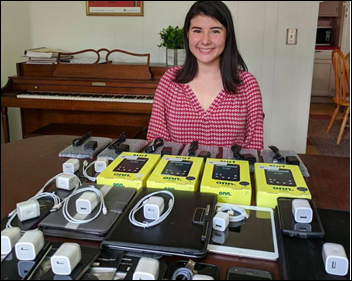

























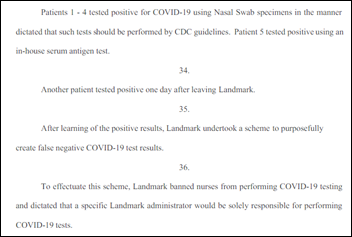






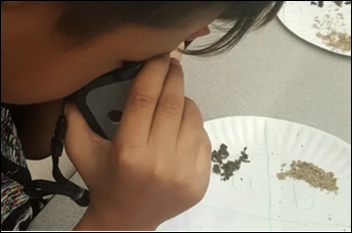





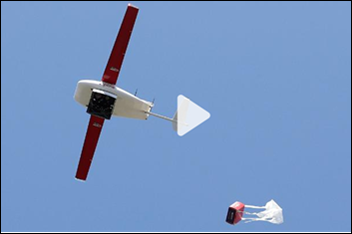












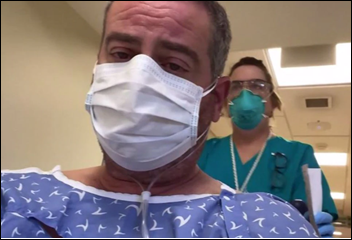













In fairness to the person on the thread the other day: Now THIS is politics on the blog. :)